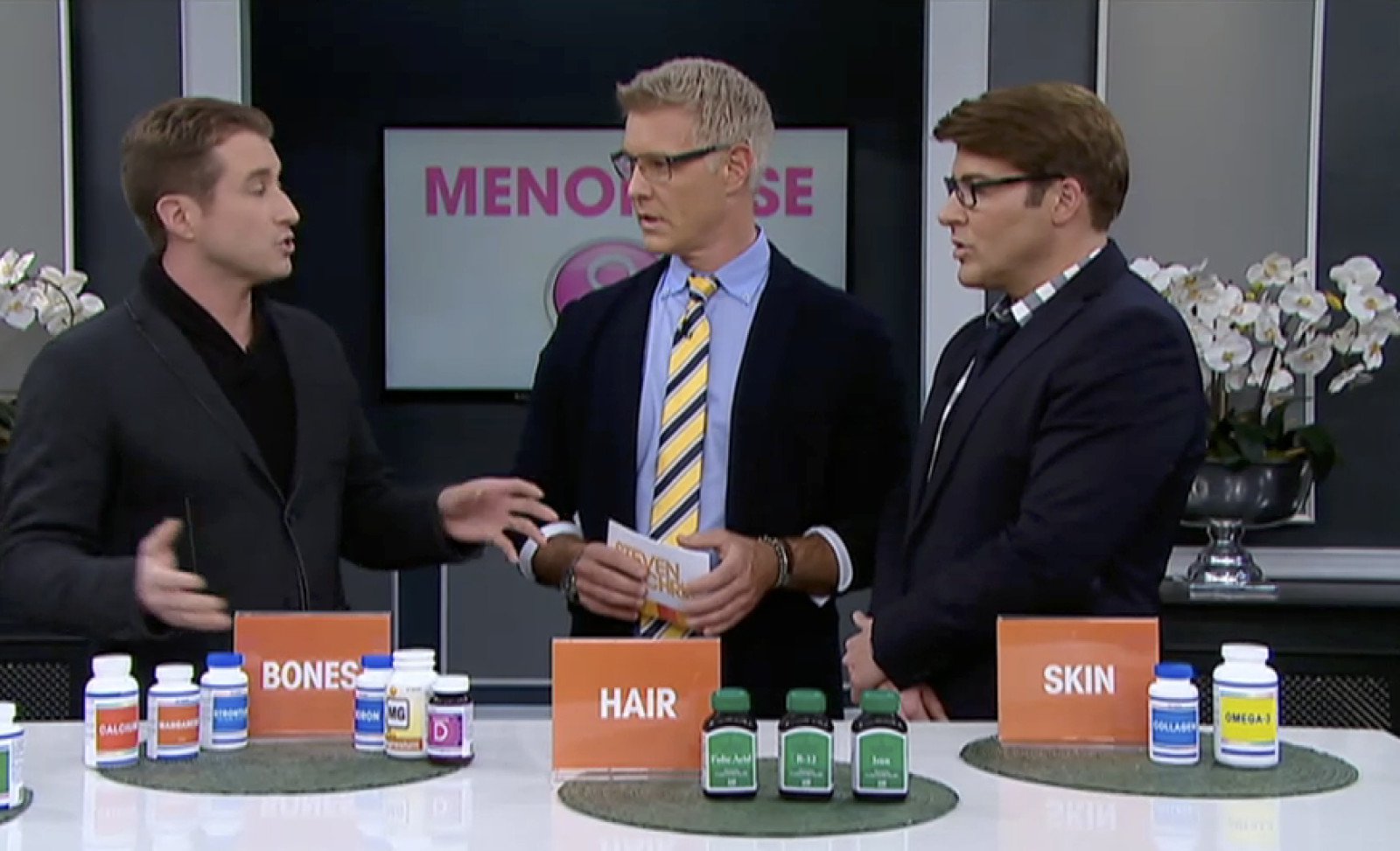Health expert Bryce Wylde shares a simple test that could save your life.
What Happens to The Body During Menopause
The clinical definition of menopause is that point in a woman’s life when her menstrual periods stop completely and for a minimum of twelve months straight as the result of normal declines in certain hormone levels. Menopause signals the end of the ovaries releasing eggs for fertilization and generally occurs between the ages of forty-five and fifty-five, although it can occur as early as the thirties or as late as the sixties. It can also be induced by the surgical removal of both ovaries and/or by chemotherapy treatment.
The 3 Stages of Menopause
There are three stages to menopause: perimenopause, menopause, and postmenopause. Prior to menopause, during perimenopause, a woman may begin to experience physical and emotional signs and symptoms such as hot flashes and depression, even though she’s still menstruating.The average length of perimenopause is four years, but for some women this stage may last only a few months and in others, it may continue for ten years.
How Hormone Fluctuations Affect Us
Hormonal fluctuation which is quite common to the transition of menopause. When it is extreme, then symptoms can be intense: hot flashes and/or night sweats; trouble sleeping; vaginal dryness. Hormone replacement therapy may be indicated (so long as it’s bioidentical) if the individual is actually found to be low or deficient in a certain hormone based on the most accurate testing available.
During postmenopause — when a year has passed since the last menstrual period — women are at a higher risk for developing osteoporosis (bone loss) and heart disease, due to the decrease in circulation of the hormone estrogen.
With all of these hormone changes, mood changes are common. Assessing neurohormones along with sex hormones is vital to understand what might be ideal to help with mood-based symptoms throughout menopause. Finding a low serotonin could be corrected by supplementation, exercise, and light exposure. Also try: Mindful breathing and yoga.
Natural Remedies for Menopause Symptoms
Hot Flashes and Night Sweats
As a woman approaches menopause, the signals between the ovaries and pituitary gland diminish, slowing down estrogen production and increasing luteinizing hormone (LH) secretions. Hot flashes can result from these hormonal changes.
- EstroG 100 formula: is a blend of hot-water-extracted herbs from Phlomis umbrosa, Cynanchum wilfordii, and Angelica gigas Nakai (Korean Angelica), all of which have at least 400 years of documented usage and history in Korea and/or China as traditional folk medicine.
- Vitex: is a herb that has been used for years and it is so helpful to regulate the menstrual cycle and improve luteal phase progesterone
- Sage: Used in herbal medicine as a natural remedy to help relieve menopausal symptoms including hot flashes. Traditionally used in herbal medicine to reduce excess perspiration/sweating (hyperhidrosis).
- Isoflavones: Such as promensil which is formulated with red clover isoflavones. Promensil Menopause has been studied to help relieve menopause symptoms including hot flushes, hot flashes and night sweats.
- Black cohosh: A herb from a shrub-like plant that contains several ingredients, including triterpene glycosides and isoflavones.
- False Unicorn is native to the southern US and given its name from the way it looks: Steroidal saponins are generally credited with providing false unicorn root’s activity. However, modern investigations have not confirmed this, so this is a bit more like folklore.
Long-Term Physical Canges
Common to the decline in estrogen, bones weaken, hair thins, and skin loses elasticity.
Bones: A complete bone mineral formula which includes: Calcium, Magnesium, Vit-D, Boron, Manganese, and Strontium (people don’t know enough about the latter 3 minerals but they are key). Recent studies show that magnesium may be equally or more important than calcium for bones
Hair: Thinning hair is commonly due to iron and B12 deficiency (which we cover above) as well as hormonal changes (excess testosterone or DHT in PCOS), other reasons are thyroid imbalance, auto-immunity, and protein deficiency to name a few. There really isn’t a “this remedy” for hair loss
Skin: There are two key things that really work 1) Omega-3 EPA/DHA and 2) Collagen (the biocell form of collagen which is from type 2 Hydrolyzed Collagen + HA (Hyaluronic Acid) + Chondroitin Sulfate)
